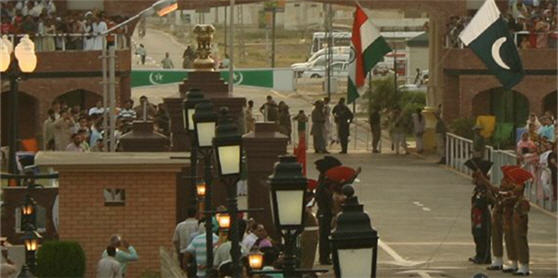
India is playing it close to the vest with information on last month’s deadly terrorist attacks in Mumbai. Interpol secretary general Ronald Nobel says that his agency has been kept out of the loop, BBC reports.
Mr Noble said in the Pakistani capital: “To date, India’s government has not authorised India’s police agencies to enter any data relating to the recent terrorist attacks in Mumbai into Interpol’s databases. “The information Interpol has about what happened in Mumbai is the same information that you have – it’s information that was read in journals, that was read on the internet or that was seen on TV.”
Mr Noble has said Interpol is willing to pass on DNA profiles, photos and fingerprints of the suspects worldwide. He said it was Delhi’s “sovereign choice” on whether to pass on evidence, but was confident more would be forthcoming. “We are hopeful that it will happen very quickly. We’ve deployed a team there for that reason.”
According to a report in yesterday’s NYT, “India on Monday gave Pakistan what it called proof of Pakistani involvement in last month’s terrorist attacks in Mumbai.”
The Indian Foreign Ministry announced late Monday that it had given Pakistani officials here what it described as a letter from the lone surviving attacker. In the letter, the Indian ministry said, the gunman, Muhammad Ajmal Kasab, said he and his nine accomplices were “from Pakistan.” India did not make the specific contents of the letter public.
Pakistan’s Foreign Ministry acknowledged receipt of the letter, saying only that “the contents of the letter are being examined.” The government in Islamabad, Pakistan’s capital, has denied any links to the terrorist attacks and pressed India to offer proof. American officials have in turn pressed Pakistan to do more to crack down on terrorist groups operating within its territory.
The letter, which has been released neither to Interpol or the public, is the only evidence, aside from the word of India’s government that one alleged terrorist told them so (under what conditions of interrogation is unknown) that Pakistan is involved in this particular incident. We do, of course, have many years of history of Pakistan supporting terrorism against India.
After weeks of doing the opposite, AP reports this morning that Indian prime minister Manmohan Singh is seeking to ratchet down tensions, saying “nobody wants war.” He has renewed calls for Pakistan to crack down on Islamist militants but says, “the issue is not war. The issue is terror and territory in Pakistan being used to promote and abet terrorism.”
Simon Cameron-Moore and Alistair Scrutton, writing for Reuters, assess the likelihood of this conflict escalating to war without another terrorist attack “highly improbable,” adding, “No one, except the militants, would want it. Indian Foreign Minister Pranab Mukherjee says India is keeping all options open, comments the Indian media have widely interpreted to mean that a military response is still possible, but Mukherjee says that was not his intent. He has said previously that war ‘is no solution.'”
What, then? Cameron-Moore and Scrutton see little hope in the short term for a peace process. While “India probably realises it’s better to engage Pakistan than ignore it in the long-run, and it would like to help civilian leaders establish authority over the generals,” it “feels uncomfortable about the durability of Pakistan’s democracy” and sees little point in negotiating agreements that could easily be abrogated at the next coup.
The alternative, then, is something between war and peace:
If, analysts say, the Pakistani military refuses to abandon old jihadi assets, there will be no war and no peace. Instead there’s a real danger both sides could use non-state proxies to destabilise each others’ borders. It would be a return to the pre-2002 era, and the world will be haunted by periodic crises between the nuclear-armed neighbours.
That, in turn, will complicate the West’s efforts to stabilise Afghanistan. Some jihadi groups that had been fighting Indian rule in Kashmir have built ties with al Qaeda and the Taliban in Pakistan’s ethnic Pashtun tribal belt on the Afghan border, which the Pakistan army is struggling to control. If these groups are allowed to thrive they will continue to provide gateways for alienated young Muslims to join a global jihad against their own governments.
[…]
Pakistan already reels from an Islamist insurgency in the northwest. A crackdown on militant groups like Lashkar-e-Taiba and Jaish-e-Mohammad based in the central province of Punjab could end up driving more of their fighters into the arms of al Qaeda and the Taliban in the northwest. That would reinforce the insurgency in Afghanistan and pose more dangers for Pakistan.
Hardly a pleasant state of affairs but one that sounds quite plausible. Given the unlikehood of a permanent peace in the near future, however, this is far better than escalation into full-blown war between two nuclear states.
James Joyner is managing editor of the Atlantic Council. Photo from Flickr user dharmesh under Creative Commons license.
Image: india-pakistan-border-photo.programthumb.jpg
